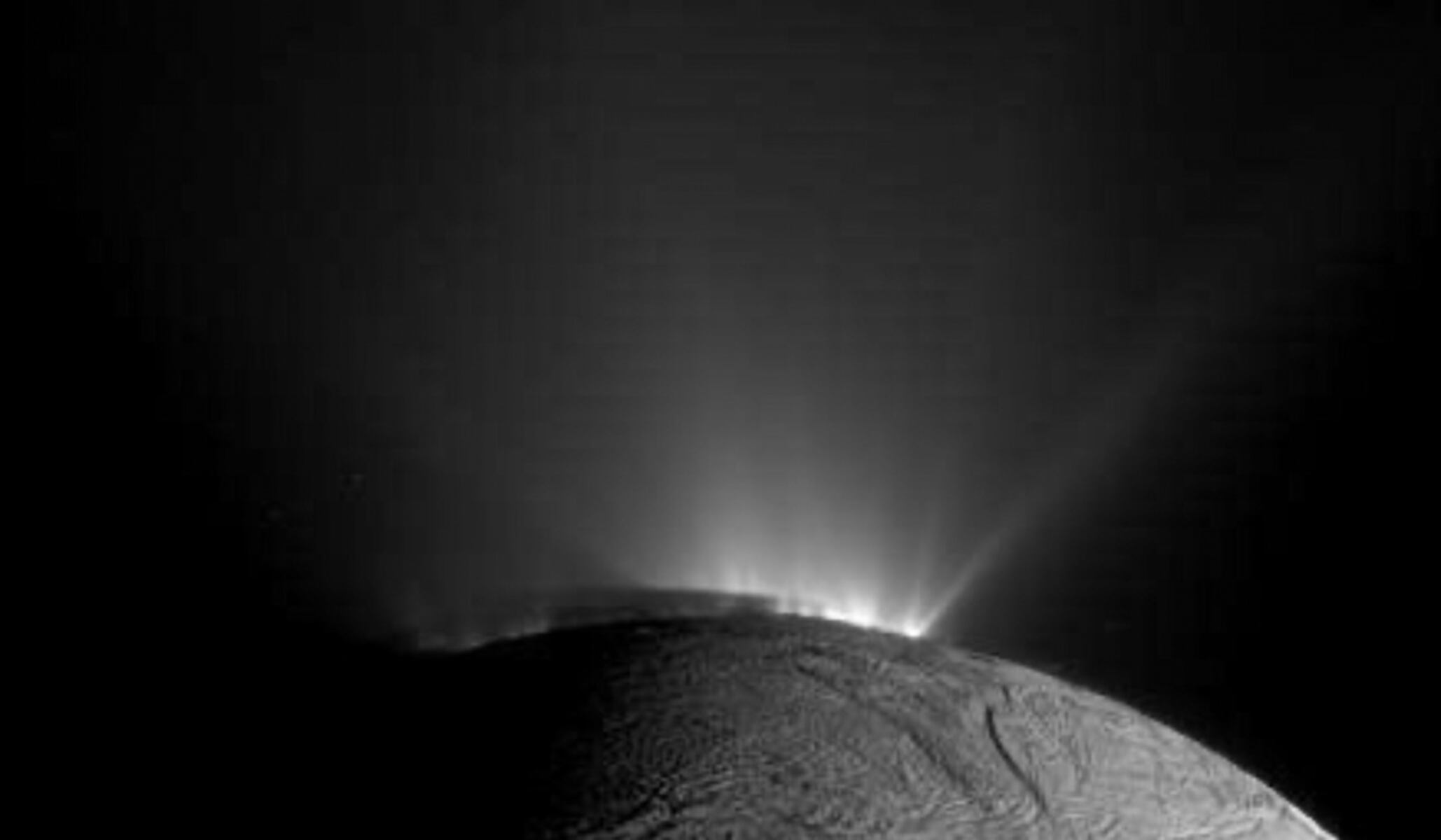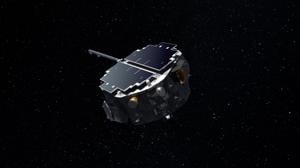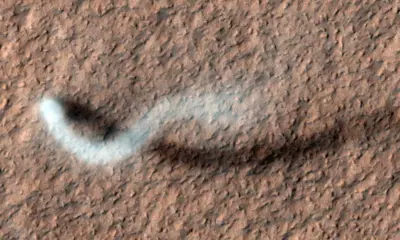Science
New Discoveries on Enceladus Raise Hopes for Life Beyond Earth

Recent findings indicate that Saturn’s moon Enceladus may possess conditions suitable for life, following the discovery of new organic compounds in icy geysers. This study, reported on October 25, 2023, is based on data collected by NASA’s Cassini spacecraft during its flyby in 2008.
Enceladus, one of the 274 known moons orbiting Saturn, has long been a focal point in the search for extraterrestrial life due to its hidden ocean and plumes of water erupting from fractures near its south pole. While the findings suggest the moon could be habitable, researchers emphasize that this does not confirm the presence of life. “Being habitable and being inhabited are two very different things,” stated Fabian Klenner from the University of Washington, who contributed to the study.
Analysis of Organic Compounds
An international research team conducted a new analysis of tiny ice grains collected by Cassini as it traversed Enceladus’ geysers. These younger grains, which were compared to older particles found in one of Saturn’s outer rings, collided with the spacecraft’s cosmic dust analyzer at speeds of 40,000 mph (64,800 kph). This increased velocity allowed scientists to gain clearer insights into the chemical makeup of the samples.
Previously identified organic molecules had raised concerns about whether they had been altered by space radiation over time. The recent analysis not only confirmed the presence of these familiar compounds in the new grains but also revealed previously unknown chemical structures, indicating a direct connection to the moon’s subsurface ocean. The results have been published in the journal Nature Astronomy.
Enceladus is a small moon measuring just over 310 miles (500 kilometers) in diameter. It is speculated to have hydrothermal vents on its ocean floor, similar to those found in Earth’s Arctic regions. The moon’s geysers can eject water vapor and ice particles thousands of miles into space, enhancing its profile as a candidate for hosting life.
Future Exploration Missions
Scientists are advocating for new missions to further investigate Enceladus. The Cassini spacecraft, which was launched in 1997, concluded its mission by diving into Saturn in 2017 after a successful collaboration involving NASA, the European Space Agency, and the Italian Space Agency. “Having a variety of organic compounds on an extraterrestrial water world is simply phenomenal,” Klenner remarked.
Meanwhile, the European Space Agency is in the early planning stages of a mission to land on Enceladus, potentially decades into the future. Additionally, China has put forward a proposal for a landing mission. NASA is also targeting another intriguing location—Europa, one of Jupiter’s moons—with its Europa Clipper mission, expected to begin orbiting in 2030 and conducting numerous flybys of the moon.
The potential for underground oceans on moons like Enceladus and Europa makes them prime candidates for the emergence of extraterrestrial life within our solar system. Nigel Mason, a physics professor at the University of Kent, noted that this latest work underscores the necessity for further studies.
The implications of these findings could not only reshape our understanding of where life might exist in the universe but also enhance our appreciation for the complexities of celestial bodies within our own solar system.
-

 Technology5 months ago
Technology5 months agoDiscover the Top 10 Calorie Counting Apps of 2025
-

 Health2 months ago
Health2 months agoBella Hadid Shares Health Update After Treatment for Lyme Disease
-

 Health3 months ago
Health3 months agoErin Bates Shares Recovery Update Following Sepsis Complications
-

 Technology4 months ago
Technology4 months agoDiscover How to Reverse Image Search Using ChatGPT Effortlessly
-

 Technology1 month ago
Technology1 month agoDiscover 2025’s Top GPUs for Exceptional 4K Gaming Performance
-

 Technology2 months ago
Technology2 months agoElectric Moto Influencer Surronster Arrested in Tijuana
-

 Technology5 months ago
Technology5 months agoMeta Initiates $60B AI Data Center Expansion, Starting in Ohio
-

 Technology5 months ago
Technology5 months agoRecovering a Suspended TikTok Account: A Step-by-Step Guide
-

 Health4 months ago
Health4 months agoTested: Rab Firewall Mountain Jacket Survives Harsh Conditions
-

 Lifestyle5 months ago
Lifestyle5 months agoBelton Family Reunites After Daughter Survives Hill Country Floods
-

 Technology4 months ago
Technology4 months agoHarmonic Launches AI Chatbot App to Transform Mathematical Reasoning
-

 Technology3 months ago
Technology3 months agoUncovering the Top Five Most Challenging Motorcycles to Ride





















